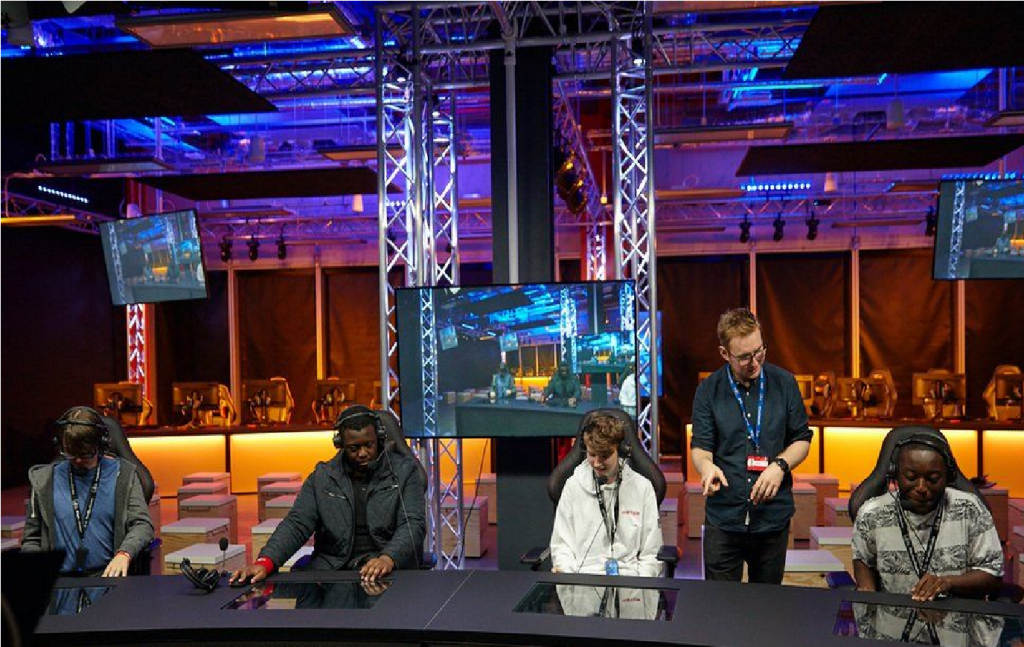Curated by the Knowledge Team of ICS Career GPS
Education

Schools trying to track potential education learning gaps in students due to pandemic
Excerpts from article by Danielle North, published in WPRI.COM
BRISTOL, R.I. (WPRI) — As the 2020 fall term is winding down, it is clear many challenges remain for students at all grade levels.
Director of Student Services with the Bristol/Warren School Department Ed Clarke says they are still trying to administer assessments and gather data to track an anticipated “education learning gap” as a result of the pandemic.
In the meantime, they are focusing on trying to strengthen relationships between students who are distance learning, and their teachers, some of whom they have never met face to face.
“We found those who performed best had frequent check ins, teachers taking a moment to really check in with the student during the day, maybe sitting for 10 to 15 minutes while eating lunch, we know there will be gaps in learning but we are really trying to focus on the emotional impact on families” Clarke said.
Clarke also says they are seeing students not logging into classes at “an alarming rate.”
The Bristol/Warren school district is really trying to pinpoint those at risk students, connect with their parents, and get them re-engaged.
Career

So you want a career in computer games tournaments?
Excerpts from article by Sooraj Shah, published in BBC News
Danielle Morgan is confident about her career in e-sports
Ms Morgan will be one of the first students in the world to graduate with such a degree, as her university was the first to offer this course in the UK. It is not just about playing computer games, it is also designed to provide skills that are needed across an industry which organises tournaments all over the world.
“It’s very business-oriented, with a focus on everything from marketing, legislation and finances, to events management, strategy and content creation,” she says.
Ms Morgan is also gaining work experience with an e-sports production firm, Status Effect, and has been helping to organise a competition involving the Rainbow Six Siege game. As she has been busy juggling her coursework and jobs, she hasn’t looked for a particular role she would want to apply for after graduating.
However, the signs are promising as e-sports is surfing a boom in computer games. The computer games industry accounts for about 52% of spending in entertainment – meaning it is bigger than film, TV and music combined.
E-sports is estimated to have a global audience of more than 200 million, along with another 200 million casual watchers.
With that kind of growth in brands and in the sector as a whole, there has also been a big rise in jobs in the last few years; jobs website Hitmarker saw the total number of e-sports jobs posted on its site grow by 87% between 2018 and 2019.
Staffordshire students learning how to run an e-sports event
In their first year they run a single-player event, in year two they run a multiplayer event and in year three they’re tasked with running a large-scale event. This provides them with a lot of the production and event management skills required in the industry.
Other universities have taken other approaches: the University of Roehampton began offering e-sports scholarships last year, and in August introduced the first women in e-sports scholarships.
Students study “a variety of degrees such as digital marketing, computer science, zoology – combining it with an e-sports scholarship on the side”, says Jonas Kontautas, Roehampton’s e-sports coordinator.
“This was because many within the industry said that it would be better for someone to have a degree in marketing in addition to an interest or scholarship in e-sports [rather] than a specific e-sports degree.”
Jonas Kontautas believes e-sports courses should be part of other degrees
This year, the focus is on the media side of the industry – with the development of skills in live streaming, content creation, writing scripts and presenting in front of camera, among others.
But Sam Mathews, founder and CEO of Fnatic, one of the most well-known professional e-sports organisations, says an e-sports degree is not necessarily going to help students secure a job at his firm.
“It depends what they do with the knowledge they have. If they do some volunteering, show they’re proactive, then like anyone that degree is good. However, the reality is we don’t hire people who are e-sports graduates at the moment, we hire people who are designers, copywriters or have specific skill sets – so I don’t think it’s as useful for e-sports teams as it is for a corporate company that wants to get up to speed on e-sports.”
Mr Mathews suggests that someone with an e-sports degree has a good chance of working under a marketing manager at a big corporate organisation or for one of the league operators where their production skills would come to the fore.
Kevin Cheung says the money is in e-sports events and entertainment
Kevin Cheung, who is one of Staffordshire University’s e-sports course leaders and has experience of working in the industry, suggests that five to six years ago, a lot of investment was targeted towards team organisations.
“I believe that wasn’t the best area to focus their investment – the returns are very difficult because teams themselves aren’t the biggest generators of cash flow, a lot of it comes from the entertainment side,” he says.
“It’s because when you think of e-sports, you tend to see professional players in a big stadium and the team organisation behind it, but there’s a whole other area behind it – the broadcasting and the infrastructure, for example,” he adds.
Founder of Fnatic Sam Mathews is lukewarm on e-sports degrees
“I don’t think any investors came in thinking they were going to triple their money in a year. There will be some people that get burned as in any industry, but the bulk of investors are here for the long term and e-sports is here to stay,” he says.
In February, Hitmarker estimated there might be more than 20,000 e-sports jobs advertised in 2020. But Hitmarker managing director Richard Huggan now says vacancies have been significantly hit by Covid-19 because the industry is so heavily reliant on live events.
“The total number of new e-sports jobs dropped to a monthly low of 396 in June and this has not really recovered since,” he says.
Mr Huggan is hopeful of increases over time and a “mini-boom” when lockdown restrictions are eased and live events return.
(Disclaimer: The opinions expressed in the article mentioned above are those of the author(s). They do not purport to reflect the opinions or views of ICS Career GPS or its staff.)
Like this post? For more such helpful articles, click on the button below and subscribe FREE to our blog.




